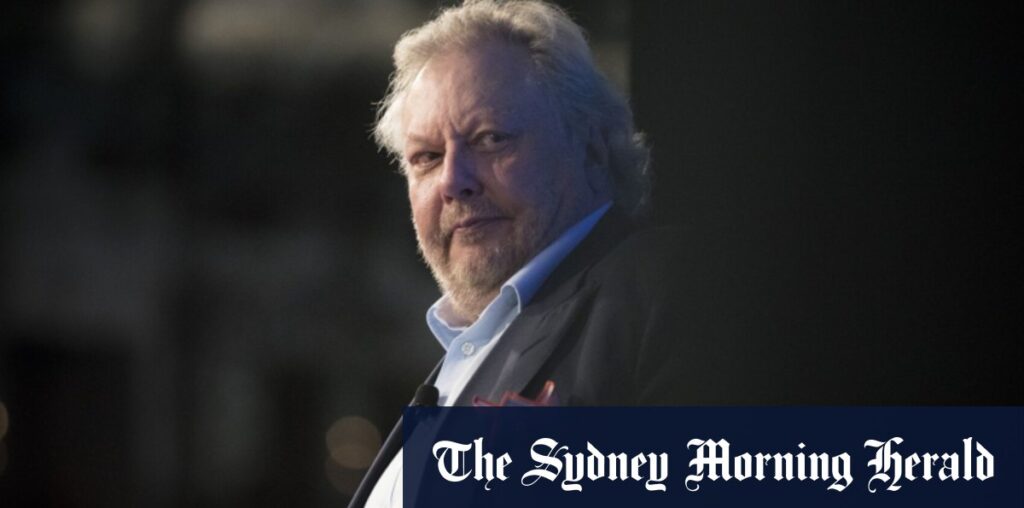
B Lab co-founder Andrew Kassoy.
“As a society, we’re increasingly dependent on the judgment of a few influential tech leaders, which is inherently risky,” he said.
“The way many of these companies have been structured, they have raised capital and then gone public with share structures where there’s basically two classes of shares. One is for an entrepreneur or the couple of co-founders, who then have all the votes on everything that actually matter.”
“If those people do the wrong thing, everybody else is along for the ride.”
Aaron Levie, co-founder and chief executive of publicly listed US cloud computing firm Box, said he was a “big fan” of dual-class structures and super-voting shares.
“I think the market at times can be wrong about how to think about a company strategy or evaluate where a company is going and can be much more near-term oriented,” he said.
“I think that it’s very helpful if you have a founder who is able to make decisions that might be in a longer time period than what the market is maybe perceiving.
“If you did an analysis of all companies with super-voting stock that are led by founders, I think you would find that they tend to perform extremely well.”
Kassoy, Levie and other technology industry insiders were closely watching OpenAI, maker of ChatGPT, which is reportedly working on a plan to restructure into a for-profit corporation that will no longer be controlled by its non-profit board. Such a move would make OpenAI, arguably the most influential company in the artificial intelligence sector, more attractive to investors.
OpenAI’s original mission, established when it was founded as a non-profit in 2015, is to “develop artificial general intelligence safely and for the benefit of humanity”. Last month, it closed a $US6.6 billion ($9.1 billion) funding round, valuing it at an estimated $US157 billion ($238.6 billion) and cementing its place as one of the world’s most valuable private companies.
Loading
Kassoy said a public benefit corporation (PBC) is not a certification, not subject to ongoing monitoring of actual performance by a third party, and is available only in the regions that have passed benefit corporation legislation.
For Kassoy, given the role AI will play in society’s future, this is cause for alarm. OpenAI should consider establishing a “purpose trust”, Kassoy said, similar to the governance structure adopted by its competitor Anthropic.
Anthropic has a special class of shares, but instead of being in the hands of the company’s founders, they’re in the hands of a trust entity that has legal duties to uphold the company’s mission. The trust also has a right to appoint the majority of Anthropic’s board members.
“I don’t think any one of these things is perfect. There are ways around that and sunset provisions, but at least in that case, you can see a much stronger effort,” Kassoy said.
“And with that comes like a form of transparency and fiduciary duty that I think creates a much higher likelihood that [executives] behave.”
He said while there was an argument for “buyer beware” – that investors should be aware of a company’s governance structures before they invest – issues that might affect companies such as OpenAI, or WiseTech, could go far beyond affecting just shareholders.
“We can’t just say ‘well, that’s too bad for the people who took the risk and invested in the company and made a stupid decision’,” Kassoy said. “It’s everybody else who is pretty dramatically affected when in a situation like that by a structure where an individual has way too much control.”
Kassoy pointed to disgraced FTX founder Sam Bankman-Fried as a cautionary tale of overreliance on one individual without proper institutional safeguards in place. The entrepreneur, celebrated as a “poster boy” for crypto, is now serving a 25-year prison sentence.
Also vital when things go wrong are board members who are willing to hold executives to account when required.
Loading
Tesla’s global chair Robyn Denholm, an Australian business veteran, has faced criticism for claims she has let Elon Musk effectively run the company himself without critical oversight. A Delaware judge recently described the Tesla board’s oversight as “lackadaisical”, a label that Denholm described as “crap”.
Kassoy said: “It’s always going to be hard for a board chair, or a board as a whole, to rein in a highly charismatic CEO. The culture of tech is one of deference to those people, and so having some other safeguards built in is important.
“I think each belt and suspender that you add can give board members a little bit more control over the CEO.”
Get news and reviews on technology, gadgets and gaming in our Technology newsletter every Friday. Sign up here.

